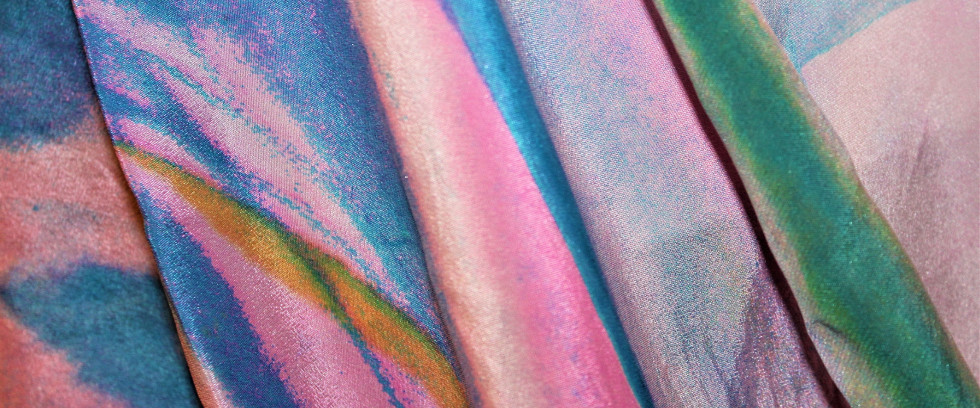California Management Review
California Management Review is a premier academic management journal published at UC Berkeley
by Claire Chang

Sustainable fashion has officially crossed into the mainstream. Rather than a certain pattern or shade, the biggest trend to emerge from fashion month was sustainability – at least, the semblance of it. From Gabriela Hearst presenting what she claimed to be the first carbon-neutral show at New York Fashion Week to Gucci’s parent group, Kering, committing to full carbon-neutrality across all brands by 2025, every brand seemed to be competing to appear the most “sustainable”. But with so many companies pitching their dedication to upcycling clothing, using biodegradable fabrics, and fighting the climate crisis, how do we sort through the lip service to identify companies who are truly pioneering long-term solutions to transform the industry?
Today’s powerful tool of social media marketing has made it so almost any company can portray itself as being eco-friendly through a few buzzwords and strategic design placement. However, it is important to delve deeper into such deceptive claims to prevent being misled. First, examine what companies are really saying amidst their claims of dedication to sustainability. For example, if a company brags that they comply with all labor laws, all they are really saying is that they’re not committing a crime. On that note, even if a company’s clothing is made from recyclable fabrics, how would we continue to recycle them – if this is even possible? Next, we must understand that sustainability in fashion encompasses the entire product supply chain. Not only should we consider the material with which the product is made, but also who makes the clothes. How are they being treated, and are the factories where they work complying with health code and ethical labor standards?
Many companies have been announcing new initiatives to use trendy “sustainable” materials such as recyclable plastics, synthetic fabrics, etc. However, many of these materials may not be as beneficial for the environment as companies claim. For example, while petroleum based synthetic fibers like polyester utilize less water and land, they actually emit more greenhouse gases per kilogram. Furthermore, the rise of buzzwords such as “recycled plastic” and “all-natural materials” can be confusing to consumers who are unaware of what exactly these terms imply. In fact, using recycled plastic produces microparticle pollution that can easily enter our oceans with every wash, harming marine life and even eventually infecting the water we drink. Moreover, clothing brands touting their use of “all-natural materials” are almost always referencing cotton, a crop that is notoriously water-intensive and pesticide-heavy. The takeaway here is that phrases such as “all-natural” are meaningless, and should not be blindly believed to have a positive impact on the environment.
Given the rampant misleading information surrounding clothing brands’ claims of sustainability, there must be policy action taken to ensure that these brands are held accountable in adhering to environmental regulation standards. Such governance has been proven successful by other nations and can similarly be applied here in order for meaningful solutions to be implemented. In China, the country’s Ministry of Environmental Protection launched a massive inspection campaign in 2017 to identify businesses that were not adhering to air pollution standards. They discovered that 70 percent of the 14,000 businesses they examined did not comply with the standards, and thus imposed hefty fines on violators in an attempt to “normalize compliance”. A similar call for accountability was also enacted in France with the 2017 Duty of Care of Parent Companies and Ordering Companies law, which required companies to set up vigilance plans to identify risks in their supply chains, and imposed fines if such programs are not implemented.
Using the above tactics to guide us, we must closely examine companies who tout a sustainable model in determining whether to truly trust their claims. Everlane, a popular rapidly expanding company that markets itself as a “radically transparent” company that works with “the best, ethical factories in the world” has actually been rated by Good on You to be “Not Good Enough” as a result of the lack of evidence that the brand works towards decreasing water and hazardous chemical use throughout their entire supply chain. In addition to using leather, wool, and animal hair in their products, they have also been known to employ people from countries with a high risk of labor abuse, while providing no proof that they ensure a living wage for these workers. Everlane’s marketing tactic of associating their brand with transparency and environmental consciousness has made the company immensely popular among consumers looking to buy consciously. Thus, it is more important than ever for us consumers to be properly informed in order to avoid being swayed by fluffy claims and deceptive marketing when shopping sustainably.